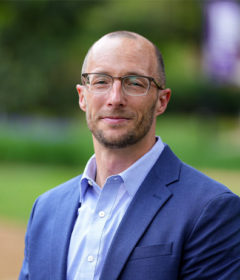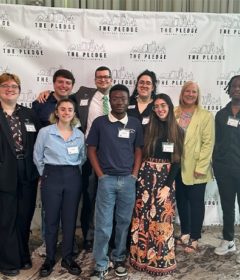What Is Leadership?

What is leadership?
lead•er•ship Ä|lē-dər-|shipÄ noun 1 a position as a leader of a group, organization, etc. 2 the time when a person holds the position of leader. 3 the power or ability to lead other people.*
Google “great quotes about leadership” — Google, of course, that’s what we do! — and there is no shortage of inspirational entries.
Dwight D. Eisenhower is credited with saying, “Leadership is the art of getting someone else to do something you want done because he wants to do it.”
From Martin Luther King Jr.: “A genuine leader is not a searcher for consensus but a molder of consensus.”
Said Jeannette Rankin, the first woman to hold national office in the United States: “You take people as far as they will go, not as far as you would like them to go.”
“To handle yourself, use your head,” said Eleanor Roosevelt. “To handle others, use your heart.”
John F. Kennedy: “Leadership and learning are indispensable to each other.”
Yet, what really is the definition of leadership … at Stetson? More importantly, who is defining leadership at the university, and how? The following pages offer insight, only a sampling, beginning at the top.
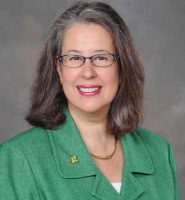
“I virtually never think about ‘leadership,’ per se. I just think about doing the best job I can do for the place that is in my care. It’s only in retrospect that it either looks like leadership or it doesn’t. … I don’t work toward a legacy. I just work toward making this wonderful university the best I can make it, to allow Stetson to grow stronger academically and financially. … I build great teams. We agree on a vision. I get out of the way of really great, talented people. I nurture talent.” — President Wendy B. Libby, Ph.D.
“Leadership involves guiding people and organizations to places that they cannot see for themselves, getting them to believe that greater things are possible than what is currently happening. Leading a group — whether students in a class, faculty in a meeting or administrators who represent a variety of areas — requires communication, innovation, inspiration and visioning, all of which are inherent in that first statement.

“The job of all leaders is to vision for the future — to see what possibilities are. To me, that’s where the gift of wisdom — the ability to see past what you might initially see — can be a great asset. In some sense, wisdom is a gift, earned over time and through experience. Great leaders, then, have the wisdom to offer insight into opportunities for the future.” — Noel Painter, Ph.D., Interim Executive Vice President and Provost; Associate Professor of Music
“Research demonstrates that new tensions to traditional models of leadership exist. Technologies are catalyzing faster change and the marketplace is now a global one. And, our workforce is becoming more team-centric, diverse and younger and older at the same time. As a result, an urgent challenge of the 21st century is the definition of leadership, the value of leadership and what fundamental skills, capabilities and dispositions are critical to fostering nimble leaders.
“The word ‘leader’ implies followers, and traditional models of leadership have buckled under the weight of this implication. Access to real-time information has stripped traditional leaders of implied ‘authority.’ Diversity has pushed against the notion of the ‘suit,’ replacing it with people from every demographic profile.
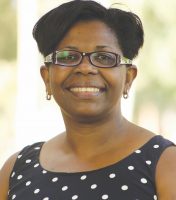
“In higher education, hierarchical models of leadership have relied historically on the positional leader – coordinator, director, chair, dean, provost, president, chancellor and others. Given the demand for novel leadership approaches, positional leaders must rely on distributed models of leadership. In other words, our roles as positional leaders are to build leadership competencies in all people, ensuring institutional capacity for change as well as robust succession planning in all facets of the academy.” — Rosalie Richards, Ph.D., Associate Provost for Faculty Development; Professor of Chemistry and Education
“I define leadership as setting broad agendas to transform an organization, about seeing the big picture with defined outcomes and goals, and working with others to determine how we can advance our mission. We don’t produce widgets; we help students to think about how to be significant in the world, and give them the tools and insight to solve problems that may not yet exist.

“Higher education is about people, and leadership is about surrounding yourself with talented people, building teams, empowering them to identify obstacles that have an impact on accomplishing organizational goals, and providing them with the freedom to produce creative and innovative solutions. Leadership also is about encouraging independent able — then celebrating successes organizationally and individually.
“Finally, leadership has legitimacy only with integrity. The simple guiding principle is to do the right thing for the right reason.” — Christopher M. Pietruszkiewicz, J.D., Dean, College of Law; Professor of Law
“To me, leadership is service to the community. Leading means using one’s abilities, knowledge and skills to move the community — however we define it — toward a better future. … Done well, it provides transformative opportunities to students irrespective of social, cultural and economic background and allows everyone to realize their full human potential. So leadership in academia for me means paying it back and paying it forward: ensuring that our students receive a first-rate education that equips them to wrestle with 21st-century problems.

“Leadership sometimes gets confused with management. They are definitely not synonymous, at least in my book. Management is crucial; it provides a firm foundation on which to build; the trains have to run on time and within budget. But leadership is about the longer-term goals, imagining and dreaming and strategizing about where we want to go and what we want to build.” — Karen Ryan, Ph.D., Dean, College of Arts and Sciences; Professor of Russian Language and Literature
“Leadership means inspiring, through the efforts of others, accomplishments that would not have been achieved otherwise. That standard for leadership is something that’s actually quite difficult in practice.
“Leadership is not focused on the one who leads — it is about the ones who follow. To the dismay of many individuals in presumed leadership positions, leadership at its core is a democratic concept. Each and every individual with whom the leader interacts decides whether they will follow or go their own direction.
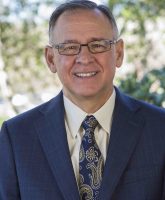
“Leadership is about achieving something that is extraordinary. When designed properly, modern managerial systems help you select and compensate individuals and structure jobs to accomplish the organization’s mission. The value proposition then of true leadership is inspiring a vision not about what should be, but about what could be.” — Neal P. Mero, Ph.D., Dean, School of Business Administration; Professor of Management
“We all realize that leadership is not just management or administration, and it does not necessarily come with a title. Leadership is perceived, and what some perceive as the ideal leader, others do not. Look no further than our current political climate to know how diverse our opinions are on what qualities best represent a leader. I have come to think of leadership as a balance between perception and instinct.

“Leaders must be keenly aware of how they are perceived by those they aspire to lead, but they must also rely on instinct to know that what motivates one person will differ from what motivates the next. Leaders enable the eager and encourage the reluctant. Some of the best examples of leadership come from humble beginnings — a staff member with an idea that galvanizes those around her to make a significant positive change in the organization.
“Leadership means giving those who are eager room to succeed. At the same time, leaders must motivate the reluctant to engage in moving forward. Sometimes you must lead from the front of the pack; at other times you push from behind. The best leaders find paths to success that both the eager and the reluctant are willing to follow.” — Susan Ryan, Betty Drees Johnson Dean, duPont-Ball Library & Learning Technologies
“The most engaging leaders possess some crucial characteristics which define their leadership: charisma, vision and empathy. The best leaders are consultative and do their best to draw from as many viewpoints and opinions as possible, and then work to develop a vision and mission appropriate to the organization. “In my vision of leadership, character matters: In an academic environment, we not only educate our students with the knowledge for them to be successful in their careers, but we model for them a behavior that we hope makes an imprint on their development as leaders. Honesty and transparency matter.
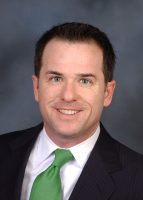
“As leaders, the decisions we make and how we communicate those decisions become an example for young adults to emulate. Our behavior both in and out of the academy establishes a model for the aspiring leader.” — Thomas G. Masse, Ph.D., Dean, School of Music; Professor of Music
Note: This article originally appeared in the Fall 2016 issue of Stetson University Magazine. To read the entire magazine, click here. The next issue of the magazine is scheduled for publication this winter.

